Search

Muhammad: The Messenger of God is an 2015 Iranian film directed by Majid Majidi. The story revolves around the childhood of the Islamic prophet Muhammad. The film marks Iran’s biggest-budget production to date and is the first part of the planned trilogy on the life of the Prophet. Barring a few scenes filmed in South Africa, the majority of the filming was done at a colossal set created in the city of Qom near Tehran. The film was officially announced in October 2011 and its filming was completed by 2013. The cinematography is done by Vittorio Storaro and film score is composed by A. R. Rahman. The film was selected for the Oscar for Best Foreign Language Film at the 88th Oscar ceremony in 2016, but was excluded from the short list.

Gritty softcore thriller about a female assassin brutally victimized in her past and her target, who turns out to be her long lost lover. Can they escape their world of violence before her handler, a sadistic yakuza, catches up with them?

From a chance meeting to a tragic fallout, Malcolm X and Muhammad Ali’s extraordinary bond cracks under the weight of distrust and shifting ideals.

An in-depth look at the life of boxer, Muhammad Ali, including his years as an activist and philanthropist.

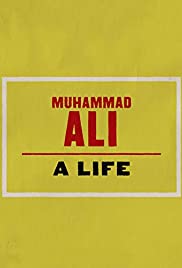
Muhammad Ali: A Life takes a look back at the life and career of the world champion boxer and activist. No athlete has ever contributed more to his country or to the world than Muhammad Ali.
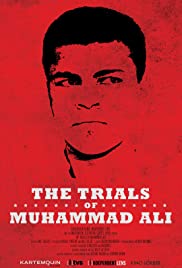
Brash boxer Cassius Clay burst into the American consciousness in the early 1960s, just ahead of the Civil Rights movement. His transformation into the spiritually enlightened heavyweight champion Muhammad Ali is legendary, but this religious awakening also led to a bitter legal battle with the U.S. government after he refused to serve in the Vietnam War. This film reveals the perfect storm of race, religion and politics that shaped one of the most recognizable figures in sports history.
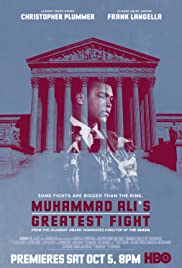
Muhammad Ali’s historic Supreme Court battle from behind closed doors. When Ali was drafted into the Vietnam War at the height of his boxing career, his claim to conscientious objector status led to a controversial legal battle that rattled the U.S. judicial system right up to the highest court in the land.

The study of crazy brilliance and flamboyant sincerity. a.k.a. Cassius Clay presents a fascinating look at the incredible life and achievements of one of the most courageous, outspoken and charismatic figures of boxing: Muhammad Ali. Born Cassius Clay in 1942, Ali soon rose to become a renowned athlete, an articulate author and a compelling political; leader. Audacious, ambitious and totally fearless, Ali became a symbol of pride, a legend of hope and one of the most extraordinary cultural icons of the 20th century.

In 2015, Ossamah Al Mohsen and her son were the victims of a trip on the Hungarian border by a television reporter in her desperate flight from a Syria at war. The cameras captured this moment by scandalizing public opinion. This kick allowed Ossamah, famous soccer coach in his country, to arrive in Madrid and resume his profession. But the rest of his family did not have the same luck. The story of Ossamah allows us to reflect on the survival of thousands of Syrian families trapped in Turkey but also that of Moatassam, Youssef and Muhannad, three promising Syrian footballers who were robbed of the best years of their lives by war.

Muhammad Ali’s life story up to the late 1970s, which includes his Olympic boxing triumphs as Cassius Clay, his conversion to Islam, his refusal of the Army draft and the legal battle after being stripped of his World Title.

Cem Kaya’s dense documentary essay celebrates 60 years of Turkish music in Germany. An alternative post-war history that is at the same time a musical Who’s Who – from Yüksel Özkasap to Derdiyoklar and Muhabbet.

1964 was the year the Beatles came to America, Cassius Clay became Muhammad Ali, and three civil rights workers were murdered in Mississippi. It was the year when Berkeley students rose up in protest, African Americans fought back against injustice in Harlem, and Barry Goldwater’s conservative revolution took over the Republican Party. In myriad ways, 1964 was the year when Americans faced choices: between the liberalism of Lyndon Johnson or Barry Goldwater’s grassroots conservatism, between support for the civil rights movement or opposition to it, between an embrace of the emerging counterculture or a defense of traditional values.

Ten of Muhammad Ali’s former rivals pay tribute to the three-time world heavyweight champion.

Humble and introvert Muharrem lives in a solitary and meager existence of a prayer and sexual abstinence adhering strictly to the most severe Islamic doctrines.His extraordinary devotion attracts the attention of the leader of a rich and powerful Istanbul religious group and he offers him an administrative post as a rent collector for their numerous properties. Muharrem’s new job throws him into the modern outside world he has successfully avoided for so long. He soon witnesses conflict attitude toward alcohol consumption and goodwill.He notices that he himself has become proud, domineering and even dishonest.To make matters worse, Muharrem’s inner peace is unnerved by the tormenting image of seductive woman who tempts him in his dreams,both night and day.With the balance of his devotion now upset,his fear of God begins to eat away at his senses.

Irish Traveller Frances has to fight for the right to pursue her passion… boxing. She is determined to make her idol Muhammad Ali proud, as well as her father who has recently been released from prison. But when she wants to show him just how tough she is, she soon comes to realise he’s got other plans for her.

The true story of legendary Hindu warrior king “Prithviraj Chauhan” including his early military successes, love story with Sanyogita & clashes with Muhammad of Ghor, a ruler of the Ghurid dynasty who led the foundation of Muslim rule in the Indian subcontinent.

Indian migrant worker Najeeb Muhammad goes to Saudi Arabia to earn money. However, in a twist of fate, he finds himself living a slave-like existence, herding goats in the middle of the desert.
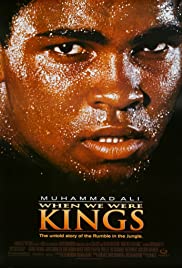
It’s 1974. Muhammad Ali is 32 and thought by many to be past his prime. George Foreman is ten years younger and the heavyweight champion of the world. Promoter Don King wants to make a name for himself and offers both fighters five million dollars apiece to fight one another, and when they accept, King has only to come up with the money. He finds a willing backer in Mobutu Sese Suko, the dictator of Zaire, and the “Rumble in the Jungle” is set, including a musical festival featuring some of America’s top black performers, like James Brown and B.B. King.
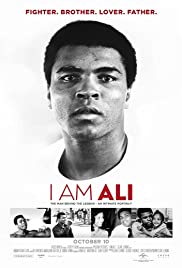
Unprecedented access to Muhammad Ali’s personal archive of “audio journals” as well as interviews and testimonials from his inner circle of family and friends are used to tell the legend’s life story.
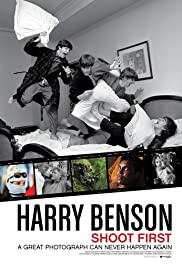
What we know today about many famous musicians, politicians, and actresses is due to the famous work of photographer Harry Benson. He captured vibrant and intimate photos of the most famous band in history;The Beatles. His extensive portfolio grew to include iconic photos of Muhammad Ali, Michael Jackson, and Dr. Martin Luther King. His wide-ranging work has appeared in publications including Life, Vanity Fair and The New Yorker. Benson, now 86, is still taking photos and has no intentions of stopping.
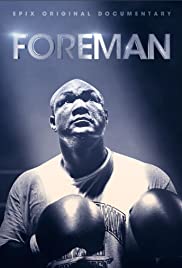
Cast as America’s Villain in the famed Rumble in the Jungle against Muhammad Ali, George Foreman lost one of the greatest fights in sports history. Immediately after the defeat, “Big George” fell into a spiral that made him abandon boxing and spend 10 years becoming an ordained minister following a near death experience. 20 years later on and into his 40’s, Foreman began an improbable climb back to the summit of world boxing becoming the heroic figure he’d always been destined to be, and writing one of the greatest underdog stories ever told.
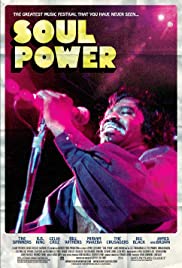
Soul Power is a 2008 documentary film about the Zaire 74 music festival in Kinshasa which accompanied the Rumble in the Jungle heavyweight boxing championship match between Muhammad Ali and George Foreman in October 1974. The film was made from archival footage; other footage shot at the time focusing on the fight was edited to form the film When We Were Kings.
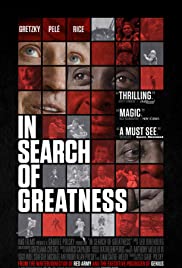
The film is a cinematic journey into the secrets of genius as told through the greatest athletes of all time. It includes original interviews with Wayne Gretzky, Pelé, Jerry Rice, and features Muhammad Ali, Serena Williams, and Michael Jordan, among others.